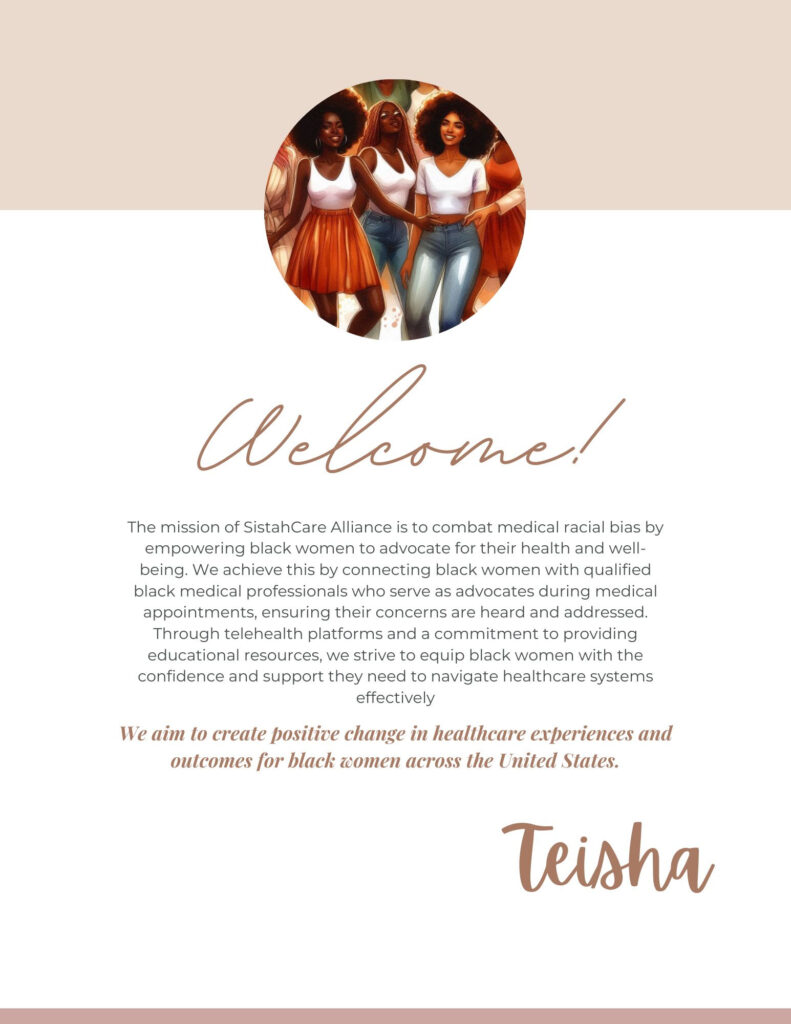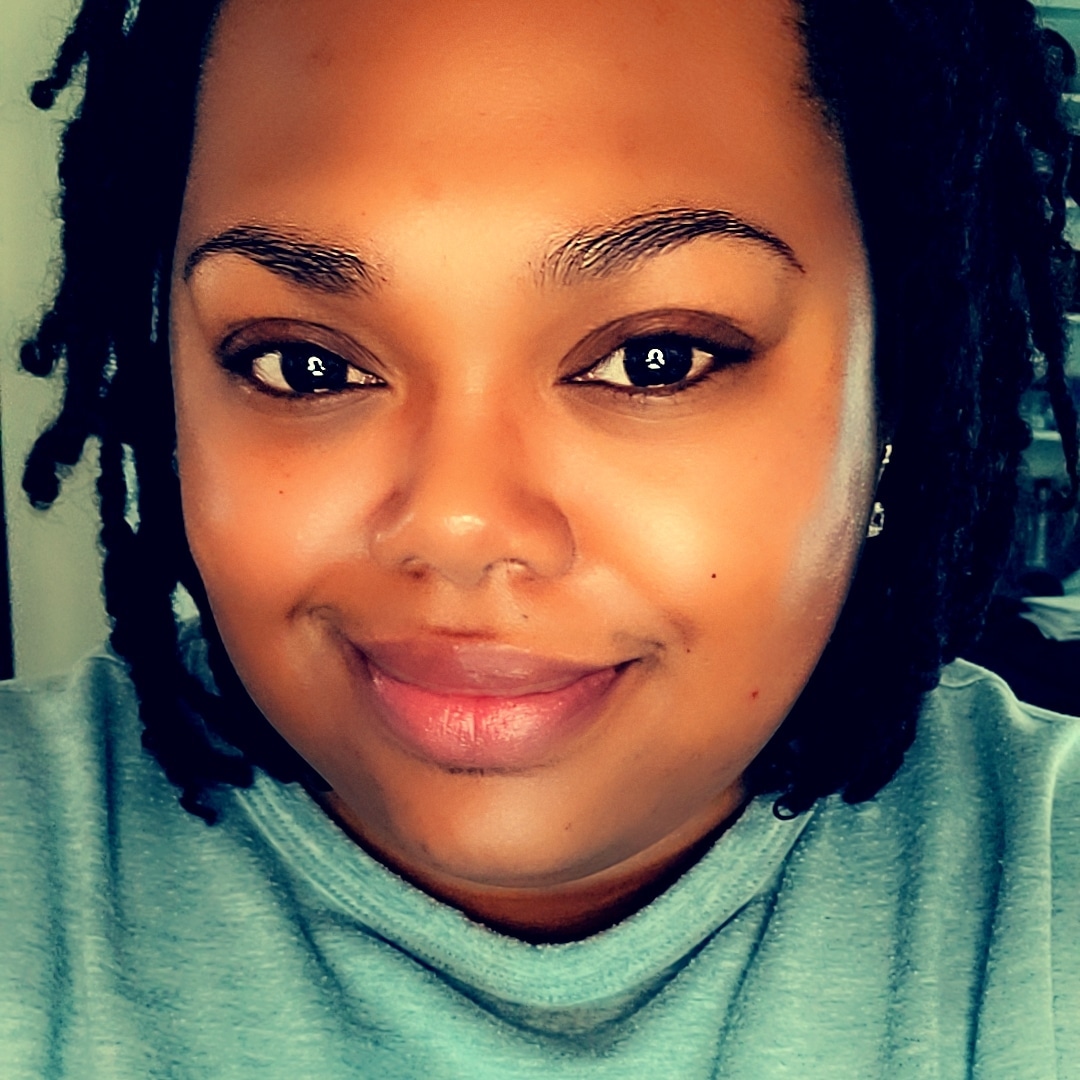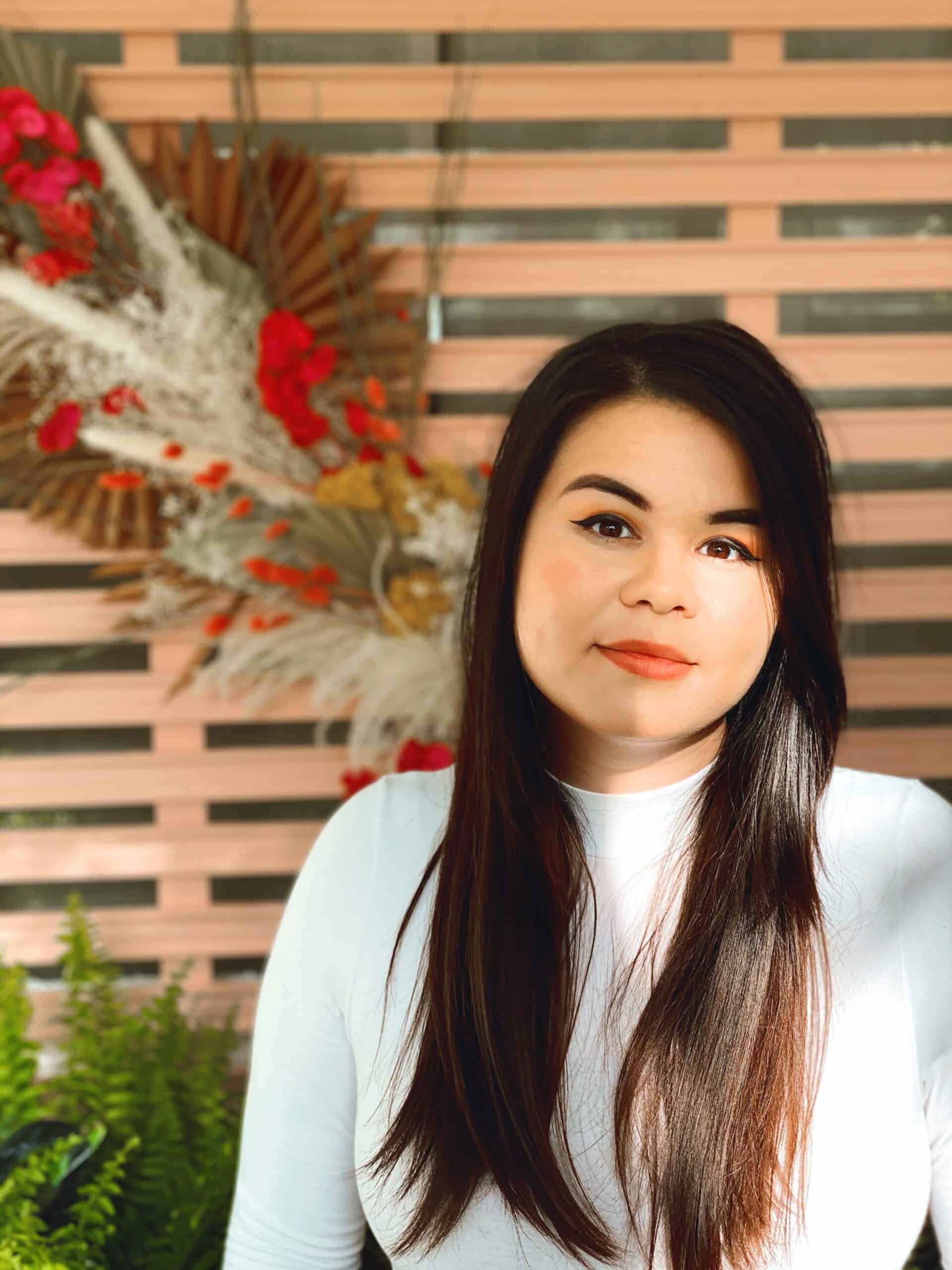Teisha Leshea’s journey is a testament to resilience and determination in the face of medical biases that disproportionately affect women of color. Her personal experiences, rooted in a desire to ensure no one else faces the neglect and gaslighting she witnessed her mother endure, led to the creation of SistahCare Alliance. Through this advocacy program, Teisha amplifies the voices of women of color, sheds light on racial medical biases, and fosters a community of support and empowerment. In this interview, Teisha shares her insights, challenges, and aspirations, offering inspiration for those navigating similar struggles in the healthcare system.
What inspired you to create SistahCare Alliance?
When I wanted to create this advocacy program, I had only one woman in mind: my mother. Over the years, she was a witness to the medical neglect and gaslighting that would happen when she mentioned anything about pain and how it was unbearable. I saw her lying in bed, almost in a fetal position, with tears streaming down her face, in so much pain. I wanted to create this advocacy program to become the superwoman my mom needed finally but didn’t receive in the medical space.
Can you share a personal story that highlights the medical racial biases you’ve encountered?
There are so many, but the one that comes to mind the most is when I complained about my back pain. A quick back story: I was diagnosed with scoliosis at ten and had surgery by twelve. The more I grew, the more I started to feel pain in my lower back. Each time I would complain about the pain, all of them said it was a musculoskeletal issue and to take Tylenol.
Fast forward to being in my early thirties, explaining the same issue to a different doctor, and her first response was, “Well, I’m not going to give you any drugs.” Puzzled, I stared at her and asked her why she would think I wanted them. I’ve never had a history of being addicted, so why would you assume that?” The doctor recanted and then resorted to me “being young,” it would be a risk to prescribe me narcotics. Then she said that many patients abuse the process by selling them.
I’ve never been arrested or interacted with a cop in my life, and within ten to fifteen minutes of our conversation, she accused me of being a drug addict and a drug dealer. As someone who works in the medical field, I’ve studied medical professionals thinking black women “tolerate pain” better than their white counterparts. The National Library of Medicine has conducted enough studies to expose this harsh bias.
How has your own experience with medical biases influenced your mission with SistahCare Alliance?
I knew I wasn’t the only one with these experiences outside my mother and grandmother, and I could also put my sister in that category. Without giving it a name, I knew I could use my writing abilities to bring awareness. I interviewed several women of color to give room to share their stories and the difficulties they’ve experienced.
Articles I’ve written
Hear My Cries. Voices heard on deaf ears | by Teisha LeShea | ILLUMINATION | Medium
Listen With Your Ears or Read with Your Eyes | by Teisha LeShea | Medium
What specific challenges have you faced as a woman of color in the healthcare system?
Do you know about the back pain I mentioned earlier? Still, there was the refusal of help in that area, which now caused more damage, such as a pinched nerve, deteriorating disk, and mild arthritis. I still suffer from leg numbness and back spasms.
How did witnessing the experiences of your mother, family, and friends impact your decision to start this project?
The quickest way to piss me off is to mistreat my family. Most of these medical professionals need to understand that most of us don’t take trips to the doctor as a getaway. A significant reason we’re willing to give a $30 copay is not to fake an injury or pain level.
I’ve had to look many medical professionals in the eyes and remind them that I took off from work to come here and sit in this room. Why would I waste a day off to stare at scrubs all day? Having to explain and articulate my issues to several doctors at a time for them to leave the room for an hour and come back to ask the same questions again shows a need for more consideration.
I’m at a healthcare facility, not in an interrogation room. It’s hard to explain things one hundred times while you’re in pain.
What are some of the most common issues black women face when it comes to pain management and childbirth in the medical field?
Medical professionals must use the necessary blood work to eliminate any possibilities. White blood cells usually increase during pregnancy. Women have reported that the staff did not monitor their significant drop in white blood cell counts. It is dangerous to send a new mother home with a low white blood cell count. Healthcare professionals need to review the patient’s history thoroughly.
How do you plan to build a safe community for women within SistahCare Alliance?
I am bringing together women of color and medical professionals of color to unite, share our experiences, and advocate for better treatment. At this early stage, I want to reveal only some of the details, but the ultimate goal is to serve our community.
What are your goals for SistahCare Alliance in the next year?
My goal is to create a community. I want to expand my private Facebook group to 1,000 members. I want to make a safe space for women to tell their stories and be supported. If you are a woman who wants to share her story of medical racial bias, I would encourage you to join https://www.facebook.com/groups/sistahcarealliance/
Can you describe a success story or positive change that has come from your advocacy work so far?
Opportunities like this and the courage to bring my ideas to life have been positive.
What kind of support or partnerships are you looking for from healthcare professionals?
Black medical professionals who share the same vision: I want to collaborate with doulas, lactation specialists, biologists, cardiologists, Gynecologists, nurses, CNAs, dermatologists, and Pharmacist professionals, with advocacy and education as the priority.
How do you envision working alongside healthcare professionals to advocate for women?
I don’t like to talk about it; I want to be about it, and time is of the essence. I can no longer sit on pins and needles waiting for our political leaders to scribble their names on a paper to pass a law. We change by doing. Doing the work is the priority, giving people a voice and courage.
What advice would you give to other women of color facing similar struggles in the healthcare system?
Ask questions, even the ones that don’t make sense. Read your chart notes and health history to familiarize yourself with these terms. Research, and then do more research.
Physicians often have to go back to books and their course lectures. If you are a woman who suffers from pain, get familiar with it. Keep a journal on when the pain intensifies and where you feel the pain, and be as descriptive as possible. Sometimes, you have to say the pain feels like one hundred knives are stabbing me at one time.
Understand the sensitive parts of your body; the pain at the bottom of your feet will feel different from the pain in your arm. Go to the appointment with questions. Learn how to message your physician through the patient portal. Bring someone with you that you can trust. Complain, make noise. Your doctor has a boss, and that boss has to report to another boss.
How can women in your community get involved with SistahCare Alliance?
If you want to get involved, I encourage you to follow the Facebook Group SistahCare Alliance, created on March 24, 2024. Word of mouth is critical during these times.
14. What are some key resources or tools you recommend for women seeking better healthcare advocacy?
Black Mamas Matter Alliance – Advancing Black Maternal Health, Rights & Justice
National Black Doulas Association®
National Black Midwives Alliance – Home
10 Ways to Be Your Own Advocate at the Doctor’s Office (healthline.com)
What message do you want to send to the broader healthcare community regarding the treatment of women of color?
Addressing the treatment of women of color is vital. We must recognize and address historical and implicit biases, improve access to culturally sensitive care, and implement patient-centered practices that respect and prioritize their needs.
Increasing workforce diversity, focusing on research that includes diverse populations, and tackling social determinants of health are crucial. Additionally, advocating for policies that promote health equity and engaging with communities to understand and address their specific health needs will help create a more equitable and inclusive healthcare system.
https://www.facebook.com/groups/sistahcarealliance







